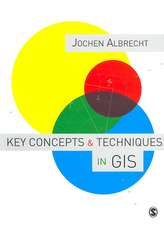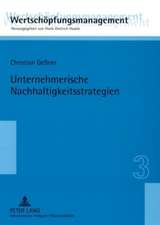Postcolonialism, Indigeneity and Struggles for Food Sovereignty: Alternative food networks in subaltern spaces: Routledge Research on Decoloniality and New Postcolonialisms
Editat de Marisa Wilsonen Limba Engleză Hardback – 6 oct 2016
| Toate formatele și edițiile | Preț | Express |
|---|---|---|
| Paperback (1) | 269.29 lei 6-8 săpt. | |
| Taylor & Francis – 30 sep 2020 | 269.29 lei 6-8 săpt. | |
| Hardback (1) | 999.51 lei 6-8 săpt. | |
| Taylor & Francis – 6 oct 2016 | 999.51 lei 6-8 săpt. |
Din seria Routledge Research on Decoloniality and New Postcolonialisms
- 9%
 Preț: 935.37 lei
Preț: 935.37 lei -
 Preț: 341.52 lei
Preț: 341.52 lei -
 Preț: 279.41 lei
Preț: 279.41 lei -
 Preț: 325.92 lei
Preț: 325.92 lei - 19%
 Preț: 269.29 lei
Preț: 269.29 lei -
 Preț: 386.51 lei
Preț: 386.51 lei - 17%
 Preț: 259.98 lei
Preț: 259.98 lei -
 Preț: 383.68 lei
Preț: 383.68 lei -
 Preț: 387.75 lei
Preț: 387.75 lei -
 Preț: 379.09 lei
Preț: 379.09 lei -
 Preț: 389.66 lei
Preț: 389.66 lei - 17%
 Preț: 259.98 lei
Preț: 259.98 lei -
 Preț: 185.94 lei
Preț: 185.94 lei - 17%
 Preț: 272.50 lei
Preț: 272.50 lei -
 Preț: 389.66 lei
Preț: 389.66 lei -
 Preț: 381.47 lei
Preț: 381.47 lei - 31%
 Preț: 764.20 lei
Preț: 764.20 lei - 18%
 Preț: 1002.63 lei
Preț: 1002.63 lei -
 Preț: 380.63 lei
Preț: 380.63 lei - 18%
 Preț: 1002.63 lei
Preț: 1002.63 lei - 18%
 Preț: 947.42 lei
Preț: 947.42 lei
Preț: 999.51 lei
Preț vechi: 1218.90 lei
-18% Nou
Puncte Express: 1499
Preț estimativ în valută:
191.25€ • 199.21$ • 159.44£
191.25€ • 199.21$ • 159.44£
Carte tipărită la comandă
Livrare economică 28 martie-11 aprilie
Preluare comenzi: 021 569.72.76
Specificații
ISBN-13: 9781138920873
ISBN-10: 1138920878
Pagini: 206
Ilustrații: 40
Dimensiuni: 156 x 234 x 16 mm
Greutate: 0.43 kg
Ediția:1
Editura: Taylor & Francis
Colecția Routledge
Seria Routledge Research on Decoloniality and New Postcolonialisms
Locul publicării:Oxford, United Kingdom
ISBN-10: 1138920878
Pagini: 206
Ilustrații: 40
Dimensiuni: 156 x 234 x 16 mm
Greutate: 0.43 kg
Ediția:1
Editura: Taylor & Francis
Colecția Routledge
Seria Routledge Research on Decoloniality and New Postcolonialisms
Locul publicării:Oxford, United Kingdom
Public țintă
Postgraduate and UndergraduateCuprins
Foreword by Melissa L. Caldwell
Introduction: sovereign food spaces? Openings and closures Marisa Wilson
1 Rethinking ‘alternative’: Māori and food sovereignty in Aotearoa New Zealand Carolyn Morris and Stephen Fitzherbert
2 Indigenous foodways in the Chittagong Hill Tracts of Bangladesh: an alternative-additional food network H M Ashraf Ali and Helen Vallianatos
3 Justice for the salmon: indigenous ways of life as a critical resource in envisioning alternative futures Sophia Woodman and Charles R. Menzies
4 Food sovereignty, permaculture and the postcolonial politics of knowledge in El Salvador Naomi Millner
5 Possibilities for alternative peasant trajectories through gendered food practices in the Office du Niger Nicolette Larder
6 Local food, imported food, and the failures of community gardening initiatives in Nauru Amy K. Mclennan
7 Cuban exceptionalism? A genealogy of postcolonial food networks in the Caribbean Marisa Wilson
Afterword Peter Jackson
Introduction: sovereign food spaces? Openings and closures Marisa Wilson
1 Rethinking ‘alternative’: Māori and food sovereignty in Aotearoa New Zealand Carolyn Morris and Stephen Fitzherbert
2 Indigenous foodways in the Chittagong Hill Tracts of Bangladesh: an alternative-additional food network H M Ashraf Ali and Helen Vallianatos
3 Justice for the salmon: indigenous ways of life as a critical resource in envisioning alternative futures Sophia Woodman and Charles R. Menzies
4 Food sovereignty, permaculture and the postcolonial politics of knowledge in El Salvador Naomi Millner
5 Possibilities for alternative peasant trajectories through gendered food practices in the Office du Niger Nicolette Larder
6 Local food, imported food, and the failures of community gardening initiatives in Nauru Amy K. Mclennan
7 Cuban exceptionalism? A genealogy of postcolonial food networks in the Caribbean Marisa Wilson
Afterword Peter Jackson
Notă biografică
Marisa Wilson is Chancellor’s Fellow in the Institute of Geography, School of GeoSciences at the University of Edinburgh, UK.
Descriere
This book provides theoretically-informed and empirically-rich accounts of the ways in which formerly-colonialised peoples conceptualise and practice alternatives food networks. It explores whether and how alternatives to globalizing industrial food networks can even exist in countries and regions long characterised by externally-led forms of capital accumulation and enduring hierarchies of modernity. This book furthers our understanding of how, why and where alternatives to the globalising industrial food system emerge and thrive, or do not. The book highlights long-term ‘power geometries’ that have created opportunities for some alternative producer-consumer and state-market-civil society relations and not others. In contrast to those who would discard of the term ‘alternative’ altogether, contributions critically employ the term to enliven debates about the theoretical downsizing of capitalism and further our understanding of the complexities of alternative-mainstream relations in the postcolonial world.








